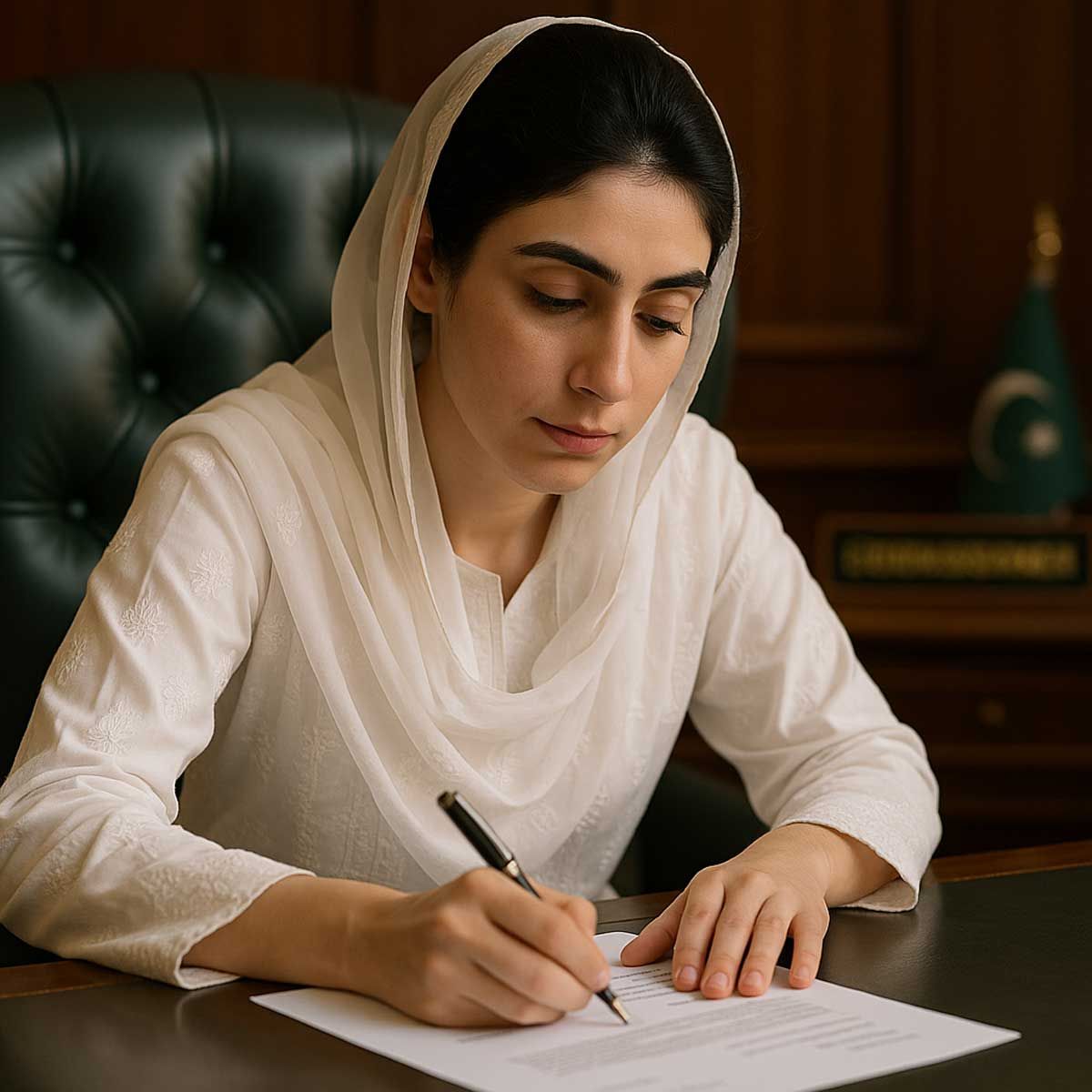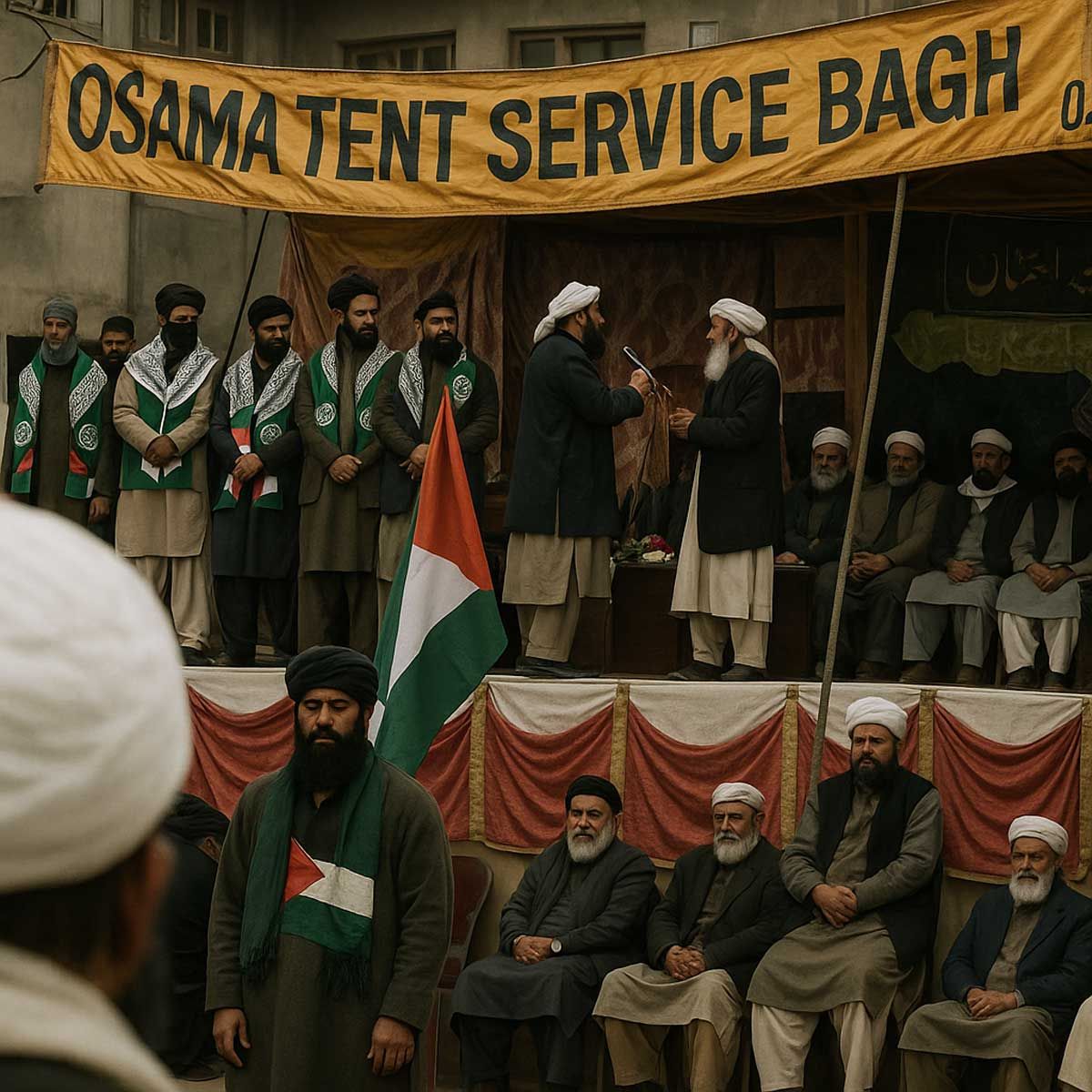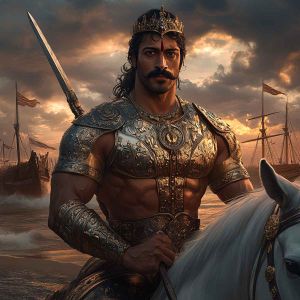Sanatan Articles
Satyaagrah
Written on
Satyaagrah
Written on
Satyaagrah
Written on
Satyaagrah
Written on
Satyaagrah
Written on
JOIN SATYAAGRAH SOCIAL MEDIA
Nehru's Himalayan Blunders which costed India dearly - Pre-Independence

Jawaharlal Nehru became India's first Prime Minister, thanks to Mohandas Karamchand Gandhi who arm-twisted the Congress into accepting him over the immensely popular and capable Sardar Vallabhbhai Patel. The Congress party's dynastic lackeys like to call Nehru the "architect of modern India". The claim, ironically, is true: Nehru is responsible for the lion's share of the problems that India has inherited from the 1940s through the early 1960s.
Nehru’s leadership was unique not only in terms of the paucity of achievements, or the large gap between the potential and the actuals, or a very poor show compared to other comparable nations; but in the blunders that he made. Other leaders too make mistakes, but Nehru can beat them all hands down. The number, the extent, and the comprehensiveness of the Nehruvian blunders can’t be matched.
Comprehensive? Other leaders blunder in one or two or three areas. Not Nehru. His coverage was comprehensive. He blundered in practically all areas (and sub-areas, and in very many ways): external security, internal security, foreign policy, economy, education, culture,… it’s a long list. An examination of his record leaves you gasping. Here is a very cryptic label to capture the essential Nehru: “Nabob of Cluelessness”.
Of course, quite irrespective of the fact that the balance-sheet of the Nehru period was deep in red, it cannot be denied that Nehru meant well: it is another matter that his erroneous understanding of economics, foreign affairs, external security and many more things led to policies that proved disastrous for the country. Also, he was well-intentioned. But, then, road to hell is often paved with good intentions!
Let us take a brief look at Nehru's monumental blunders, which went a long way towards shaping the India we all know. Not many blunders are listed under Nehru’s ‘Pre-independence Blunders’ below, compared to his ‘Post-independence Blunders’ later, because in the former period Nehru was not fully in-charge. There was Mahatma Gandhi on top, and there were many other leaders of stature, to keep him in check. Despite that, whenever Nehru held an official position bestowing him with some discretion, and an opportunity presented itself.
Blunder–1: Usurping Congress Presidentship 1929
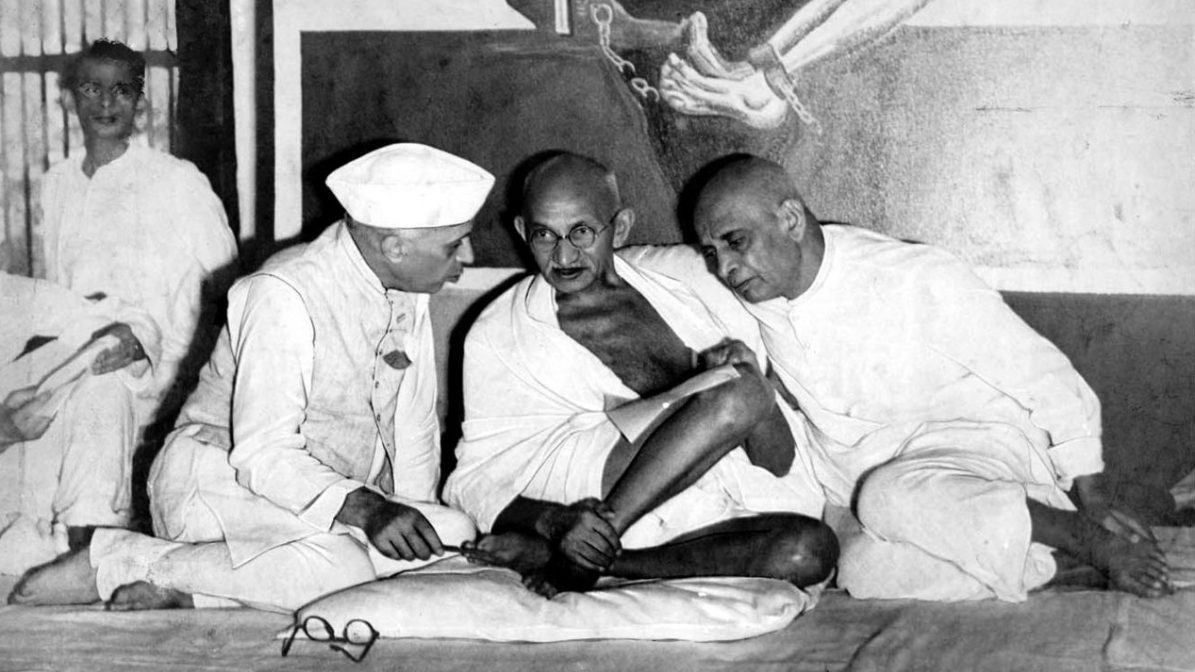 |
Jawaharlal Nehru was given an unfair leg up on Sardar Patel in 1929 by Gandhi, and made President of the Congress, despite the following facts that overwhelmingly made Sardar the deserving candidate.
Patel had led the Bardoli Satyagraha of 1928 whose resounding success had made him a national hero, and bestowed on him the title Sardar. The Bardoli Satyagraha was the first successful practical implementation of the Gandhian non-violent technique involving the rural masses on the ground. Nehru lacked such credentials.
Besides, Sardar Patel was much senior to Jawaharlal, and a larger number of Pradesh Congress Committees (PCCs: legal body to elect President) had recommended him over Jawaharlal. Yet, Gandhi, most unjustly and undemocratically, asked Patel to withdraw! Gandhi thereby tried to establish an unjust pecking order where Jawaharlal came before Patel. Netaji Subhas Bose had subsequently written: “The general feeling in Congress circles was that the honour should go to Sardar Vallabhbhai Patel.” Acharya Kripalani had remarked that Gandhi’s reasons for preferring Jawaharlal “were personal rather than political…the two were emotionally attached to each other, deny it though they may”.
Jawaharlal’s father Motilal had a major role to play in Jawaharlal’s undeserved elevation. Motilal was the Congress President in 1928. He desired that his position be inherited by his son. Subsequent to Patel’s Bardoli win, Motilal wrote to Gandhi on 11 July 1928:
“I am quite clear that the hero of the hour is Vallabhbhai, and the least we can do is to offer him the crown [make him President of the Congress]. Failing him, I think that under all the circumstances Jawahar would be the best choice.”
Motilal actively canvassed for Jawaharlal with Gandhi. Nepotism and “fight” for freedom went together: Nehrus from Motilal downwards ensured their family was well taken care of; and that it came first, ahead of the nation! In the long run, the nation paid heavily for Motilal’s brazen nepotism, exemplarily emulated by his dynasty.
The presidentship during 1929-30 was particularly significant: the one who became president was likely to be Gandhi’s successor; and he was also to declare the goal of the Congress as “purn swaraj” or complete independence (so late!!).
Jawaharlal was also favoured by Gandhi with an unprecedented second consecutive term in 1930, then another two terms in 1936 and 1937, topped by the critical term in 1946 (Blunder#6)! Such privilege was not accorded to any other leader—even Sardar Patel was made President only once for one year!
The Old Man’s weakness for the westernized Nehru over the home-spun fellow Gujarati [Patel] was yet another aspect of “Swadeshi”Gandhi’s self-contradictory personality. How Jawaharlal managed to become the “spiritual son” of Gandhi is a mystery. Wrote MN Roy in “The Men I Met”: “It can reasonably be doubted if Nehru could have become the hero of Indian Nationalism except as the spiritual son of Gandhi…To purchase popularity, Nehru had to suppress his own personality…”
Blunder–2: Setting Jinnah on path to Pakistan
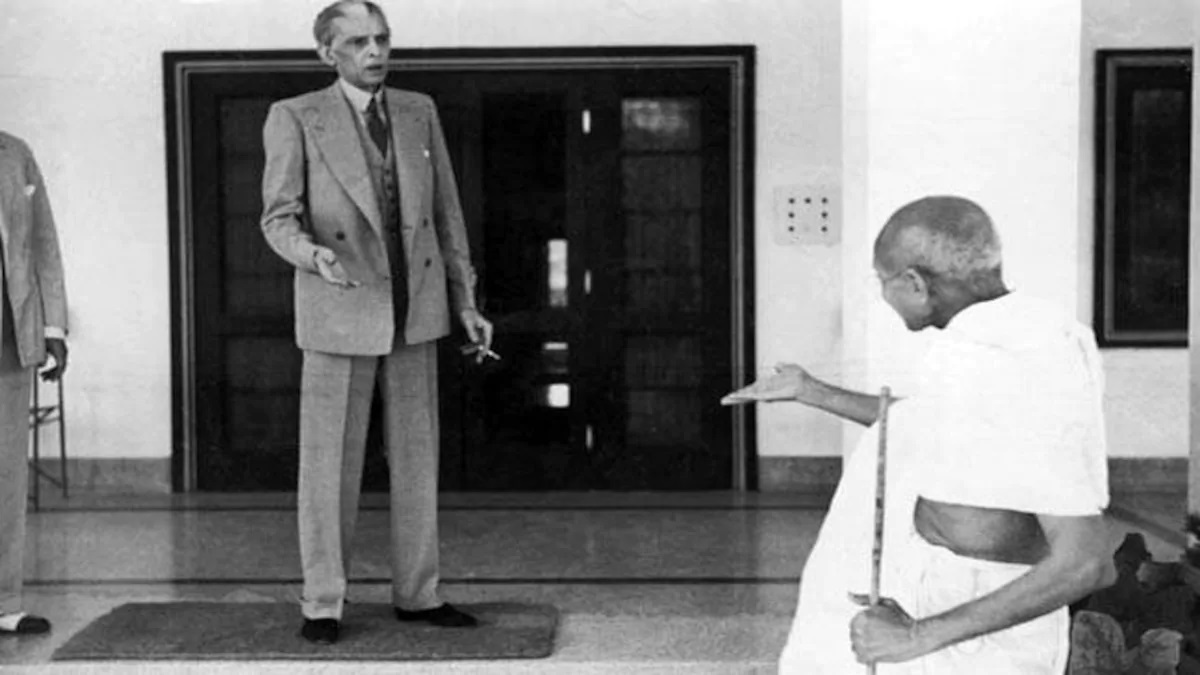 |
Before the 1936-37 provincial elections, the Congress did not expect to get enough seats to form a government on its own in UP. That was because of the other parties in the fray who had strong backing of landlords and influential sections. So as to be able to form a government, it had planned for a suitable coalition with the Muslim League. So that the Muslim League got enough seats for a coalition to be successful, Rafi Ahmad Kidwai of the Congress (who had been private secretary of Motilal Nehru,
and after Motilal’s death, a principal aide of Jawaharlal Nehru) had persuaded, jointly with Nehru, several influential Muslims, like Khaliq-uz-Zaman (third in the AIML hierarchy after Jinnah and Liaqat Ali Khan) and Nawab Mohammad Ismail Khan, who had the potential to win, to fight the elections on behalf of the Muslim League—as Muslims fighting on behalf of the Muslim League had better chances of winning. They fought and won. But, after the elections, when the Congress found it could form the government on its own, without the help of the Muslim League, it began to put unreasonable conditions.
To Jinnah’s proposal of inclusion of two Muslim League Ministers in the UP cabinet, Nehru, who was the Congress President then, and was also looking after the UP affairs, put forth an amazing, arrogant condition: the League legislators must merge with the Congress! Specifically, the terms sought to be imposed, inter alia, by Nehru–Azad were:
“The Muslim League group in the UP Legislature shall cease to function as a separate group. The existing members of the Muslim League party in the United Provinces Assembly shall become part of the Congress Party… The Muslim League Parliamentary Board in the United Provinces will be dissolved, and no candidates will thereafter be set up by the said Board at any by-election…”
The above humiliating condition that was the death warrant for the League was naturally rejected by Jinnah.
In Bombay, with the Congress Chief minister designate BG Kher willing to induct one Muslim League minister in the cabinet in view of lack of absolute majority of the Congress, and the fact that the Muslim League had done well in Bombay in the Muslim pockets, Jinnah sent a letter in the connection to Gandhi. Gandhi gave a curiously mystical and elliptically negative reply to Jinnah on 22 May 1937:
“Mr. Kher has given me your message. I wish I could do something, but I am utterly helpless. My faith in [Hindu-Muslim] unity is as bright as ever; only I see no daylight out of the impenetrable darkness and, in such distress, I cry out to God for light...”
Jinnah then wanted to meet Gandhi; but Gandhi advised him to rather meet Abul Kalam Azad, by whom he said he was guided in such matters. Rebuffed and humiliated Jinnah then decided to show Congress-Nehru- Gandhi their place. The incident led other Muslim leaders also to believe that a majority Congress government would always tend to ride rough- shod over the Muslim interests. It is claimed that, thanks to this imbroglio, the badly hurt pride of the Muslims led them to move away from the Congress and quickly gravitate towards the Muslim League, and ultimately to separation.
The incident actually proved a blessing-in-disguise for Jinnah and the Muslim League for they realised their politics needed to be mass-based to counter the Congress. Membership fee for the AIML was dramatically dropped to just two-annas. There was a huge move to increase membership among the Muslim masses, and it paid rich dividends: the membership dramatically rose from a few thousand to well over half a million! Jinnah told his followers that he had done enough of begging the Congress in the past; he would see to it now that the Congress begged of him.
The humiliated Muslim League aspirants Khaliq-uz-Zaman and Nawab Mohammad Ismail Khan, whose ambitions were thwarted by the Congress and Nehru, thereafter became the pillars of Muslim reaction and played a critical role in swinging the Muslim opinion in favour of partition and Pakistan. The British were only too glad at the development. The Secretary of State Birkenhead wrote to the Viceroy: “I have placed my highest and most permanent hopes in the eternity of the communal situation.”
It was unwise of the Congress and Nehru not to show a little generosity towards the League. Reportedly, Sardar Patel and GB Pant were willing for a coalition with the Muslim League as per the pre-election understanding, but Nehru, in his “wisdom” and hubris, decided to act arrogant, and led the way for the ultimate parting of ways with Jinnah and the Muslim League, and for Partition and Pakistan—Nehru was the Congress President in 1936 and 1937. Jinnah’s bitter reaction on 26 July 1937 to Nehru’s unjust act was:
“What can I say to the busybody President [Nehru] of the Congress? He [Nehru] seems to carry the responsibility of the whole world on his shoulders and must poke his nose into everything except minding his own business.”
The fissure caused by Nehru’s impetuosity was never healed. There is an opinion that had the Congress been accommodating towards the AIML post-1937 elections, AIML may not have hurtled forward towards Partition and Pakistan. Besides, it would have prevented counterfactual speculations. Wrote Maulana Azad:
“...I have nevertheless to say with regret that this [‘Blunder#7’] was not the first time that he [Nehru] did immense harm to the national cause. He had committed an almost equal blunder in 1937 when the first elections were held under the Government of India Act [of 1935]…
“Jawaharlal’s action gave the Muslim League in the UP a new lease of life. All students of Indian politics know that it was from the UP that the League was reorganised. Mr Jinnah took full advantage of the situation and started an offensive which ultimately led to Pakistan …
“The [Nehru’s] mistake of 1937 was bad enough. The mistake of 1946 [of Nehru] proved even more costly.”
Wrote MC Chagla: “To my mind, one of the most potent causes which ultimately led to the creation of Pakistan was what happened in Uttar Pradesh [United Provinces in 1937]. If Jawaharlal Nehru had agreed to a coalition ministry and not insisted on the representative of the Muslim League signing the Congress pledge, perhaps Pakistan would never have come about. I remember Jawaharlal telling me that Khaliquz Zaman [to whom Nehru had denied a berth in the UP cabinet in 1937] was one of his greatest and dearest friends, and yet he led the agitation for Pakistan… Uttar Pradesh was the cultural home of the Muslims. Although they were in a minority in the State, if Uttar Pradesh had not gone over to the cause of separation, Pakistan would never have become a reality.”
Blunder–3: Scoring Self-goal – Ministry Resignations, 1939
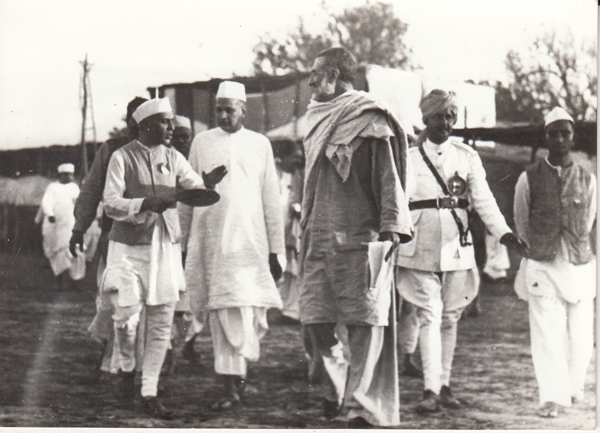 |
“Internationalist” Nehru, though vociferously most anti-fascist and anti-Nazi, advocated rabidly anti-British stand in the wake of the British declaration of war against Germany on 3 September 1939 on behalf of India. Curiously, being more a socialist and a communist sympathiser than an “internationalist”, Nehru changed his tune soon after Russia joined the war in 1941 on the side of Britain, and against Nazis!
The hard-won (thanks mainly to the efforts of Sardar Patel) Congress ministries in the provinces since 1937, under the strict vigilance of Patel, had begun to perform better than expected. To guide and coordinate the activities of the provincial governments, a central control board known as the Parliamentary Sub-Committee was formed, with Sardar Patel, Maulana Abul Kalam Azad and Rajendra Prasad as members. A number of measures in the interest of the general public had been taken. Many Congress ministers set an example in plain living. They reduced their own salaries. They made themselves easily accessible to the common people. In a very short time, a very large number of ameliorative legislations were pushed through in an attempt to fulfil many of the promises made in the Congress election manifesto.
Emergency powers acquired by the provincial governments through the Public Safety Acts and the like were repealed. Bans on illegal political organizations such as the Hindustan Seva Dal and Youth Leagues and on political books and journals were lifted. All restrictions on the press were removed. Securities taken from newspapers and presses were refunded and pending prosecutions were withdrawn. The blacklisting of newspapers for purposes of government advertising was given up. Confiscated arms were returned and forfeited arms licenses were restored. In the Congress provinces, police powers were curbed and the reporting of public speeches and the shadowing of political workers by CID agents stopped. Another big achievement of the Congress Governments was their firm handling of the communal riots.
The success rankled both with the Muslim League and the British: they never wanted the Congress to get popular.
However, ignoring the adverse consequences of getting out of the government at that stage, Nehru threatened in 1939 to pull out from ministries in various provinces, in response to the British declaration of war on behalf of India without consulting the Congress—something the British would have only welcomed!
Nehru took a stand that “friendship between India and England is possible but only on equal terms”. Further, India could not fight for freedom of others when it was itself unfree. All that tall talk was fine if the Congress had the strength to impose its will, and be capable of being enough of a nuisance for the British to stand up and take notice. But, when the British perceived the Gandhian methods as no threat at all, where was the need for them to heed?
Patel and Gandhi were not in favour of ministries resigning; but Nehru & Co
—the leftists—insisted upon it. All the Congress ministries in the provinces resigned by November 1939. The resignations were effectively a victory of the Congress Left. Had Gandhi’s prudence and wisdom of supporting the British in their war effort been followed, and had Nehru’s thoughtless emotional opposition been ignored, the Congress would have retained an upper hand against the Muslim League, and may have better managed India’s cause with the British. Resignations of the Provincial Ministries threw the Congress into wilderness.
Nehru should have realised that the Gandhian Congress was a pleader for freedom, and not a fighter for freedom. Pleaders can plead. But they can’t dictate terms.
Blunder–4: Leg-up to Jinnah
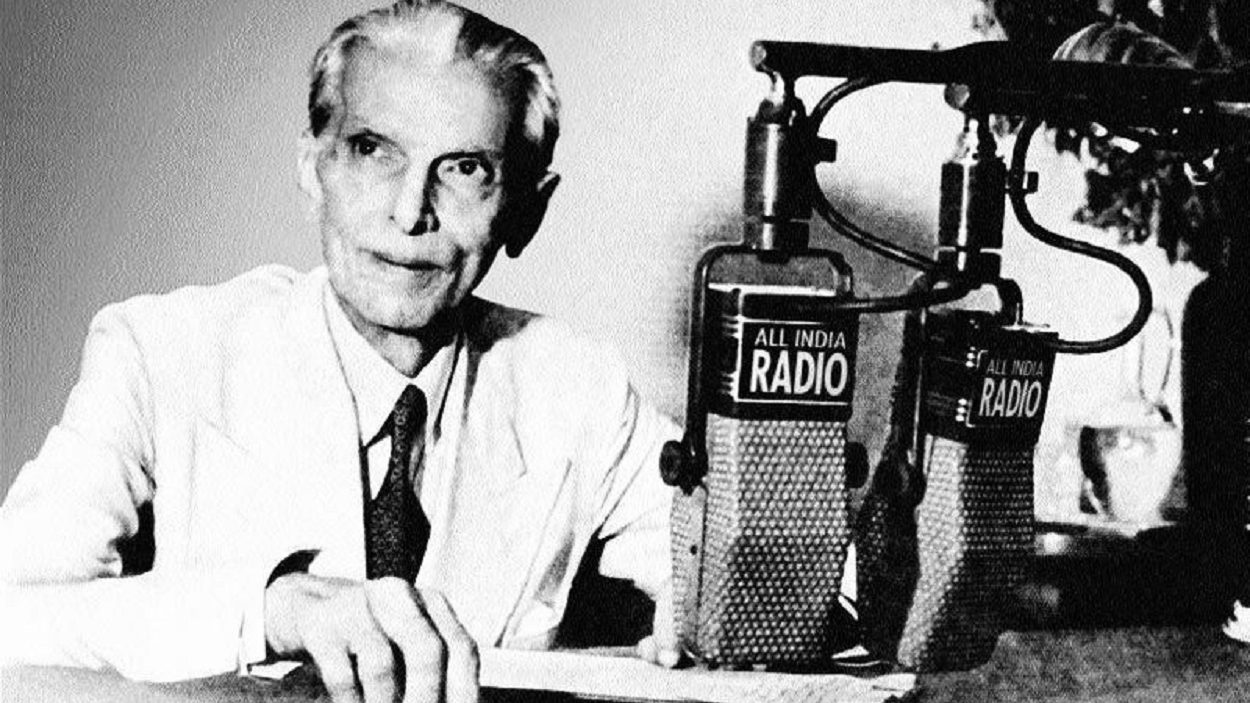 |
Jinnah and the Muslim League went to the extent of calling upon all Muslims to celebrate 22 December 1939 as the “Deliverance Day”—deliverance from the “misrule” of the Congress. Jinnah took full advantage of it, and his stars and that of the Muslim League rose. 1939 was the watershed. 1939-onwards Muslim League was on the ascendency, even as the clout of the Congress eclipsed.Resignation of the Congress ministries in 1939 was welcomed both by Jinnah and the British authorities.
It is worth noting that Nehru and the Congress were unnecessarily too obsessed with the Centre and the Central legislature, where Jinnah was able to play a wrecker. Had the Congress continued in its ministries, and had it played its cards well in the provinces in the Muslim-majority areas, they could have derailed Jinnah.
The Unionist Party headed by Sikandar Hyat Khan that ruled Punjab was a Muslim-Hindu-Sikh coalition. The Krishak Proja Party headed by Fazlul Huq, a nationalist Muslim, dominated Bengal. Ghulam Hussain Hidayatullah had formed a Hindu-Muslim coalition in Sind, independent of the Muslim League. If the Congress had intelligently coordinated its efforts with these parties, it could have sidelined Jinnah.
But, what to speak of doing that ground work and strengthening its ties with the non-Muslim League Muslim parties, the Congress itself chose to get eclipsed by giving up its ministries, thanks to Nehru’s decision.
Congress opposition to the British declaration of World War-II on behalf of India, its non-cooperation with the British in that regard, and the unconditional, whole-hearted support extended to the British by Jinnah and the Muslim League ensured the rise of the Muslim League and the gradual eclipse of the Congress, so much so that thereafter it were the British, Jinnah and the Muslim League who dictated the terms of independence, Partition and Pakistan.
Blunder–5: Assam’s Security Compromised
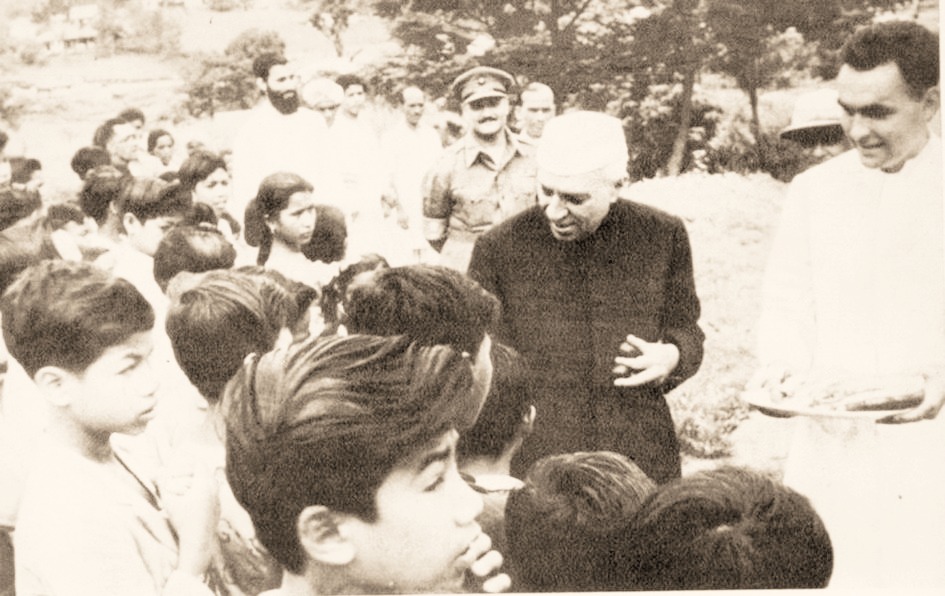 |
With the annexation of Assam by the British in 1826, British brought in the peasantry from the over-populated East-Bengal for tea plantation and other purposes. The Muslim League, in order to dominate the predominantly non- Muslim Assam and the Northeast, and make it yet another Muslim-majority region, strategized back in 1906 in its conference at Dacca to somehow increase the Muslim population in Assam, and exhorted the East-Bengal Muslims to migrate and settle in Assam. The fact of large-scale migration was also noted in the Census report of 1931. Congress leaders Bardolai, Medhi and others raised this serious issue of migration, but did not get due support from the Congress leadership at the Centre.
In 1938, when a Muslim League-headed coalition fell in Assam, Netaji Subhas Bose favoured a bid by the Congress to form a government. Several Congress leaders were opposed to the idea, particularly Maulana Azad. Sardar Patel backed Subhas Bose fully; and finally, a Congress ministry led by Gopinath Bordoloi took office. With Bordoloi in office it was hoped that the Muslim migrations would be stemmed, and the game of the Muslim League would be defeated.
However, thanks to the unwise move of Nehru and his left supporters, the Congress ministries in the provinces resigned in 1939 (please see details under Blunder-3). This forced Gopinath Bordoloi to also resign in Assam, although Netaji Subhas Bose and Patel wanted Bordoloi government to continue. This was God-sent, rather Allah-sent, for the Muslim League. Pro-British Sir Syed Mohammad Saadulla of the Muslim League, from whom Bordoloi had wrested power, again took over. With the Congress in limbo on account of the unwise surrender of power in the provinces, followed by the imprisonment of its leadership in 1942 Quit India, Saadulla ruled uninterrupted for the next seven years shoring up the Muslim base in Assam.
Saadulla brought in a Land Settlement Policy in 1941 that allowed immigrants (Muslims) from East Bengal to pour into Assam, and hold as much as 30 bighas for each homestead. He boasted to Liaquat Ali Khan that through his policies he had managed to quadruple the Muslim population in the lower four districts of the Assam Valley.
In short, the demographic position became much worse in Assam thanks to the wrong decision of Nehru.
When we talk of the North-east, we must first pay our tributes to Gopinath Bordoloi (whom Nehru ignored, and who got Bharat Ratna much later when the non-Dynasty government was in power) but for whom Assam and the Northeast may not have been part of India. The initial British Plan of 1946 for the Indian Independence clubbed Assam and Bengal together in Group-C. Such an inclusion would have had the consequence of Assamese being in a minority, to be overruled into ultimately being absorbed in East-Pakistan. Sensing this ominous possibility, Bordoloi opposed being clubbed into Group-C, contrary to what Nehru had agreed to. With Nehru remaining unamenable, Bordoloi started mass agitation. He fought the Muslim League’s effort to include Assam and other parts of the Northeast Region (NER) in East Pakistan. The Congress Party at the national level, led by Nehru, would have acquiesced to the Muslim League had it not been for a revolt by Bordoloi, backed by the Assam unit of the Congress Party and supported by Mahatma Gandhi and the Assamese public.
Blunder–6: Undemocratic Elevation as First PM
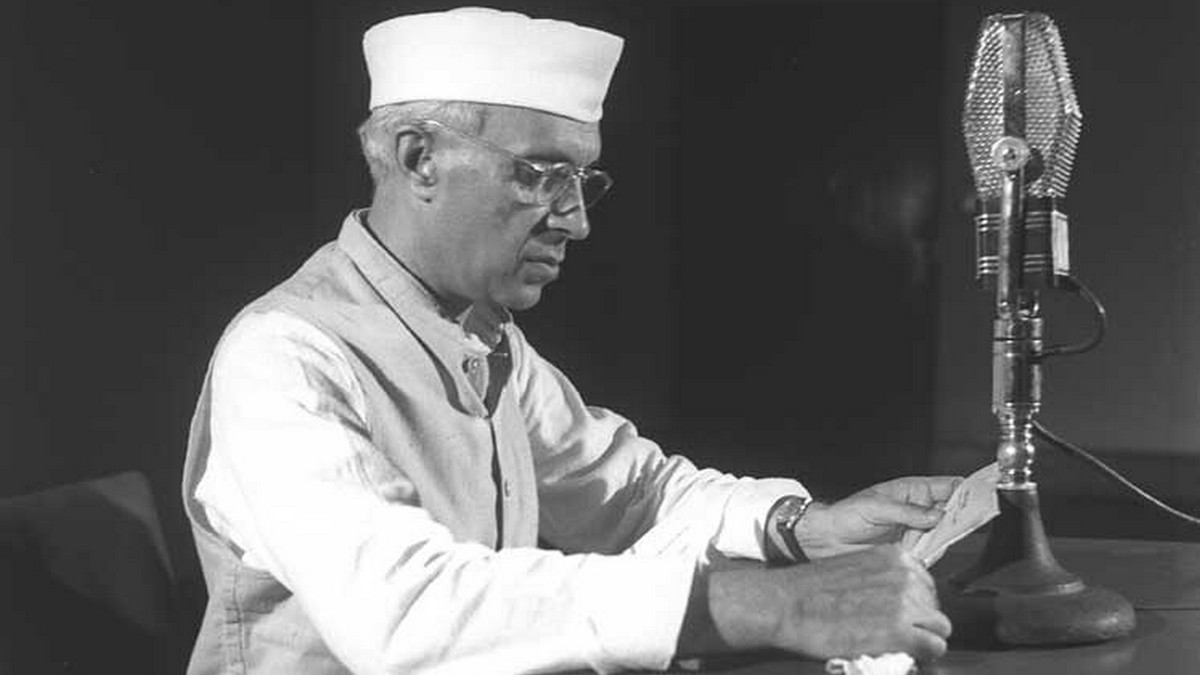 |
Post 1945, with the increasing hopes of the imminence of India’s independence, all patriots looked forward to having a strong, assertive, competent, decisive, no-nonsense person as India’s first prime minister, who would bring back the lost glory of India, and turn it into a modern, prosperous nation. Iron Man was the clear choice, being a cut much above the rest. And, nobody looked forward to having some undemocratic, indecisive, clueless sissy to mess up a hard-won freedom after centuries.
The Congress Party had practically witnessed Patel as a great executor, organizer and leader, with his feet on the ground. Sardar had demonstrated his prowess in the various movements and assignments, including that in the Nagpur Agitation of 1923; the Borsad Satyagraha of 1923; excellent management of the Ahmedabad Municipality during 1924-27; tackling of the Ahmedabad Floods of 1927; the Bardoli Satyagraha of 1928 that earned him the title of "Sardar"; the Dandi March and the Salt Satyagraha of 1930; successful management of elections for the Congress during 1934-37; preparation, conduct and management of Haripura session of the Congress in 1938 on a massive scale; building up of the party machine; role in preparation for the Quit India Movement; and premier leadership role from 1945 onwards.
Patel’s achievements were far in excess of Nehru’s, and all Congress persons and the country knew it. The far greater contribution of Patel in the Quit India Movement, unmatched by Nehru, was fresh in the mind of the Congress leaders and public.
Sardar was far better academically, and much more intelligent than Nehru. Like Nehru, Sardar Patel too had studied in England. But, while Nehru’s father financed all his education, Sardar financed his own education in England, through his own earnings! While Nehru could manage to scrape through in only a poor lower second-division in England, Sardar Patel topped in the first division!
Professionally too, Sardar was a successful lawyer, while Nehru was a failure. Sardar had a roaring practice, and was the highest paid lawyer in Ahmedabad, before he left it all on a call by Gandhi; while Nehru was dependent upon his father for his own upkeep, and that of his family.
Based on the ground-level practical experience since 1917, it could be said with certainty in 1946 that Nehru was no match for Sardar for the critical post of the prime minister. Of course, Nehru as PM in practice confirmed beyond a shred of doubt that it should have been Sardar, and not him, who should have been the first PM of India.
Whoever became the president of the Congress in 1946 would have also become the first prime minister of India, hence the presidential election was critical.
The Pradesh Congress Committees (PCCs), 15 in number, alone had the power to nominate and elect a president. Gandhi had indicated his preference for Nehru 9 days before the last date of nomination of 29 April 1946, on which date the Congress Working Committee (CWC) met to consider the nominations sent by PCCs.
Result: Not a single PCC nominated Nehru! 12 of the 15 PCCs (80%) nominated Sardar Patel. 3 of the 15 PCCs (20%) did not nominate anyone. It was therefore a non-contest. Sardar Patel was the only choice, and an undisputed choice.
But, was Sardar Patel chosen? No! It was a case of déjà vu—a repeat of 1929. Gandhi asked Patel to withdraw. Patel complied without a protest or delay. That cleared the ground for Nehru.
“I sent a paper round proposing the name of Jawaharlal [at the instance of Gandhi, when Gandhi observed no one had proposed Nehru, even though such nomination (other than by PCC) was illegal] … It was certain that if Jawaharlal’s name had not been proposed, the Sardar would have been elected as the President… The Sardar did not like my intervention. I have since wondered if, as the General Secretary, I should have been instrumental in proposing Jawaharlal’s name in deference to Gandhi’s wishes in the matter… But who can forecast the future? On such seemingly trivial accidents depends the fate of men and even of nations.” — Acharya Kriplani
Finding none had recommended Nehru, reportedly, Gandhi did tell Nehru: “No PCC has put forward your name…only [a few members of] the Working Committee have [that too at the prodding of Gandhi himself].” Nehru remained pregnantly silent. Despite his grand pretentions of Gandhi as his father figure, and he being his son, chela and follower, Nehru remained silently defiant and let it be known to Gandhi he would not play second fiddle to anyone.
It has even been claimed that Nehru tried blackmail: he threatened to split the Congress on the issue. It appears that all the “sacrifice” for the nation by Motilal and his son was geared to ultimately grab power for the Nehru dynasty!
Nehru was not without shrewdness or guile; like Franklin D Roosevelt, he had something of the lion and the fox in him and none understood better the mechanics and manipulations of Indian politics. —Frank Morass
Gandhi was a dictator. He was no democrat. And, it was not as if his dictatorial and undemocratic action did any good for the nation. It actually cost the nation dear. Rather than national interests, Gandhi’s personal bias dominated. Commented Dr Rajendra Prasad: “Gandhi has once again sacrificed his trusted lieutenant for the sake of the glamorous Nehru.”
Gandhi was actually a self-obsessed authoritarian harbouring an overblown self-image, with an inflated ego, believing his all-round quackery represented wide and deep knowledge and wisdom, and that only he knew what was best.
Didn’t Gandhi realise the immorality of his illegal and undemocratic act—and a repeat act at that? Why did he go against the wishes of the overwhelming majority?
The ‘Apostle of Non-Violence’ advocated non-violence as an all- encompassing principle: non-violence was not just in the context of use of force, but also about speech, behaviour, other acts, and so on. Was junking majority- vote not a violence against the voice of the overwhelming majority? How was being dictatorial compatible with the principle of non-violence? Is injustice compatible with non-violence? Was gross repeat injustice to Sardar Patel compatible with the principle of non-violence?
Why Gandhi kept throwing his weight behind Nehru since Nehru’s election as President of the Congress in 1929 (thanks to Gandhi), and kept giving Nehru a leg-up on the far more capable Sardar Patel right through, would remain a mystery! It proved in practice to be a major disservice by Gandhi (though unintentionally) to the nation.
Further, how could Nehru be called a democrat when he so undemocratically usurped the said post? Height of hypocrisy and brazenness was when Nehru grandly commented on his unjust elevation: “I was, for a long time, unable to make up my mind… But, the day before yesterday, I persuaded myself to shoulder the responsibility on the advice of Mahatmaji and also my colleagues in the Working Committee.”
“My own understanding is that if Sardar Patel had been Prime Minister during that time and not Nehru, India would have gone further and faster.” — Minoo Masani in ‘Against the Tide’
It cost India heavy to have Nehru in a position that could have been ably handled only by Patel as the President in 1946, and later as PM.
Even after Patel was no more, it should have been Dr Ambedkar or C Rajagopalachari or some other capable person, rather than Nehru at the helm.
Somebody asked Gandhi why he did so. Reportedly, Gandhi’s reason was he wanted both Nehru and Patel together to lead the nation, but while Nehru would not work under Patel, he knew that in the national interest he could persuade Sardar Patel to work under Nehru.
What Gandhi said amounts to this: While Sardar Patel, even though senior and much more experienced, and backed by majority, was patriotic enough to work under Nehru in the national interest, if so prodded by Gandhi; Nehru, junior, less experienced, and not backed by a single PCC, wanted only to become PM, and was not patriotic enough to work under Patel, in the national interest, even if persuaded by Gandhi!
“...[then] it seemed to me that Jawaharlal should be the new President [in
1946—and hence PM] ...I acted according to my best judgement but the way things have shaped since then has made me to realise that this was perhaps the greatest blunder of my political life... My second mistake was that when I decided not to stand myself, I did not support Sardar Patel.” —Maulana Azad, ‘India Wins Freedom’
Says Kuldip Nayar in ‘Beyond the Lines’:
“[Humayun] Kabir [translator-editor of Maulana Azad's autobiography] believed that Azad had come to realize after seeing Nehru’s functioning that Patel should have been India’s prime minister and Nehru the president of India. Coming as it did from an inveterate opponent of Patel, it was a revelation...A year earlier, Rajagopalachari had said the same thing...”
Blunder–7: Cabinet Mission Plan & Nehru’s Blunder
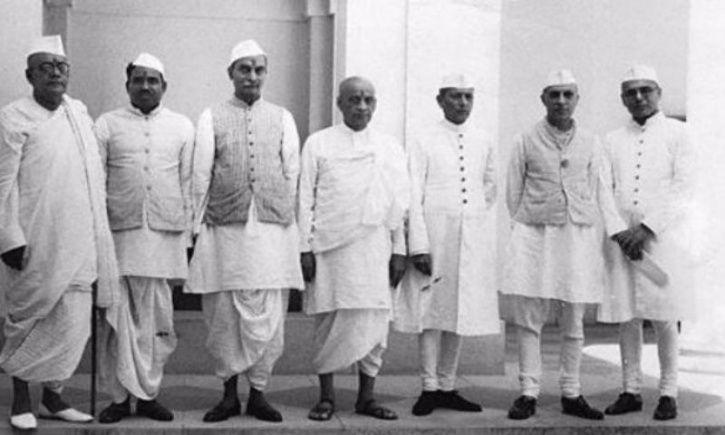 |
Prime Minister Clement Attlee told the House of Commons on 15 March 1946: “If India elects for independence, she has a right to do so.” The Raj had, at last, decided to pack up. A British Cabinet Mission comprising three cabinet ministers— Lord Pethick-Lawrence, the Secretary of State for India, Sir Stafford Cripps, President of the Board of Trade, and AV Alexander, the First Lord of the Admiralty—arrived in India on 23 March 1946 at the initiative of Clement Attlee, the Prime Minister of the UK, to discuss and plan for the Indian independence, and the transfer of power to Indian leadership. Their discussions with the INC (Indian National Congress) and the IML (all-India Muslim League) did not yield a common ground acceptable to both.
So as to make headway, the Cabinet Mission unilaterally proposed a plan (“16 May Cabinet Mission Plan”) announced by PM Attlee in the House of Commons on 16 May 1946, which, among other things, stated that Pakistan was no solution for the minority problem.
Nehru did a blunder at the very start of his Presidency in 1946. After the AICC ratification of the CWC’s acceptance of the May 16 Cabinet Mission Plan, Nehru remarked at the AICC on 7 July 1946: “We are not bound by a single thing except that we have decided to go into the Constituent Assembly.” At a press conference three days later, he declared that the Congress would be “completely unfettered by agreements”, and that “the central government was likely to be much stronger than what the Cabinet Mission envisaged.” Nehru then made controversial remarks on the grouping proposed.
Jinnah contended with the British that Nehru’s remarks amounted to “a complete repudiation” of May 16 Plan, and therefore the British government should accordingly declare that the Congress had not really accepted the May 16 Cabinet Mission Plan. In the absence of any action in that respect from the British government, Jinnah took the extreme step: he got the Muslim League to revoke its acceptance of the May 16 Plan, and gave a sinister call for the launch of “direct action to achieve Pakistan.”
Calling for observing 16 August 1946 as DirectAction Day, Jinnah said: “Today we bid goodbye to constitutional methods. Throughout, the British and the Congress held a pistol in their hand, the one of authority and arms and the other of mass struggle and non-cooperation. Today we have also forged a pistol and are in a position to use it.”
The result was the Calcutta Carnage, the Great Calcutta Killings, the worst communal riot instigated by the Muslim League, that left 5,000 to 10,000 dead, 15,000 injured, and about one lakh homeless!
Nehru’s indiscretion put paid to the scheme of united India, precipitated Jinnah’s call for Pakistan, and resulted in the ghastly Direct Action above. Patel was aghast both by Nehru’s blunder, and by Jinnah’s momentous decision. Patel wrote to DP Mishra: “Though Nehru has been elected (President) for the fourth time, he often acts with childlike innocence... but we must not allow our anger to get the better of ourselves... His Press conference [was an] act of emotional insanity…”
Maulana Azad called Nehru’s act “one of those unfortunate events which change the course of history.”
Maulana Azad confessed in his autobiography, ‘India Wins Freedom’: “It was a mistake on my part that I did not support Sardar Patel. We differed on many issues but I am convinced that if he had succeeded me as Congress President, he would have seen that the Cabinet Mission Plan was successfully implemented. He would have never committed the mistake of Jawaharlal which gave Mr. Jinnah an opportunity of sabotaging the Plan. I can never forgive myself when I think that if I had not committed these mistakes, perhaps the history of the last ten years would have been different.”
Blunder–8: Making Jews out of Hindu Sindhis
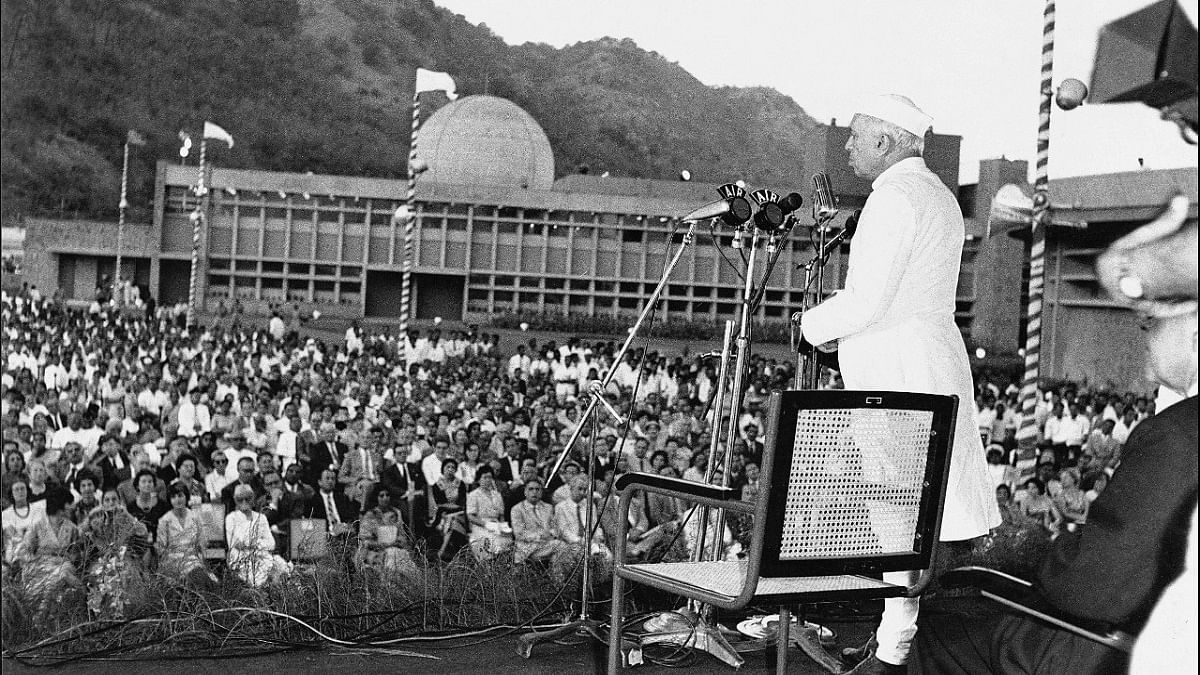 |
The home of the oldest civilization in the world—the Indus or Sindhu Valley Civilization—highlighted by the excavations at Mohenjo-daro is Sindh. It dates back to over 7000 BCE. The 3,180 km long Indus or Sindhu River that originates near Lake Mansarovar in the Tibetan Plateau runs through Ladakh, Gilgit-Baltistan, Western Punjab in Pakistan, and merges into the Arabian Sea near the port city of Karachi in Sindh. Sindhu means water in Sanskrit. Name India is derived from Indus. Sindhu River has a number of tributaries: Its left bank tributaries are Zanskar in Ladakh, and Chenab in the plains, which in turn has four major tributaries, namely, Jhelum, Ravi, Beas and Sutlej; and its major right bank tributaries are Shyok, Gilgit, Kabul, Gomal and Kurram. The Indus delta (current Pakistan) is mentioned in the Rig-Veda as Sapta Sindhu (Hapta Hindu in the Iranian Zend Avesta), meaning ‘seven rivers’.
Aryans were indigenous to India, and hence to Sindh. The Aryan-Invasion Theory has long since been conclusively debunked. Genetic studies also prove it. Aryan-Dravidian divide was also a deliberate myth floated by the colonists to serve their divide-and-rule and proselytization strategy.
Sindh was part of the empire of Dashrath (father of Shri Ram) during the second Vedic period. After Shri Ram returned from vanvas defeating Ravana, and became king, he gave the responsibility to his brother Bharat to rule Sindh and Multan. Later, Gandhar (Kandahar) came under him. To Bharat’s sons goes the credit of building the cities of Peshawar and Taxila.
Sindh was in good hands till the reign of Harshavardhana who ruled India and Sindh during 606–647 CE, after which it went into weaker hands. Buddhism, which vigorously taught non-violence, and which had its presence in Sindh, too contributed to weakening the defence capabilities. There were several hundred Buddhist Sanghas in Sindh at the time, and many thousand Buddhist monks.
There were 15 attempted invasions of Sindh both from land and from sea between 638 CE and 711 CE, but all were repulsed. Mohammed Bin Qasim finally managed to plunder Sindh in 712 CE. He first attacked Debal, a temple town near sea, in April 712 CE, won it, and then proceeded to defeat the then king of Sindh, Dahir, which he did on 16 June 712 CE. Qasim and his army plundered the riches of Dahir’s territories, and carted away the booty to the court of Hajjaj in Baghdad. Many women were abducted to Baghdad. All males over
17 years who refused to convert to Islam were killed. But, finding there were too many Hindus to kill, they were granted Dhimmi status upon regular payment of Jizya tax.
There is an interesting tale on the death of Mohammed Bin Qasim. As per Chachnama, the Sindhi chronicle of the times, Qasim had sent the two daughters of King Dahir as presents to the Khalifa for his harem. To avenge their father’s death by Qasim, the daughters lied to the Khalifa that Qasim had violated them before sending them. Enraged, the Khalifa ordered that Qasim be wrapped and stitched in oxen hides, and brought to Syria. That resulted in his death from suffocation. Upon discovering the sisters’ subterfuge, the Khalifa then ordered that the sisters be buried alive in a wall.
The home of the oldest civilization in the world highlighted by the excavations at Mohenjo-daro—the Indus or Sindhu Valley Civilization—is Sindh. Name India is derived from Indus. The Indus delta (current Pakistan) is mentioned in the Rig-Veda as Sapta Sindhu (Hapta Hindu in the Iranian Zend Avesta), meaning ‘seven rivers’.
Sindh came under the British in 1843, and was included as a part of the Bombay Presidency. At the time of partition Sindh was a British India province. It was bordered by Baluchistan and West Punjab (to the north), and by the Princely States of Bahawalpur (northeast), Las Bela (west), Kalat (west), and Khairpur (east: Sindh province surrounded it from three sides). To its east was Rajasthan, and Gujarat was to its south. As per the census of 1931, Sindh’s population was 4.1 million, of which 73% were Muslims, 26% were Hindus, and the remaining 1% were Christians, Sikhs, etc.
Hindus were concentrated in urban areas, while Muslims dominated the countryside. Hindus were in absolute majority in four of Sindh’s five largest cities (for example, Hyderabad was 70% Hindu), the exception being Karachi which was about 48% Muslim, 46% Hindu, and the remaining 6% non-Muslims belonged to other religions—there also Muslims were not in absolute majority. Four sub-districts to the southeast—Umarkot, Nagar Parkar, Mithi, and Chachro — adjoining India had Hindu majority of 57%. Several nearby sub-districts too had about 40–45% Hindus. In view of these, Southeast Sindh, plus certain adjoining areas to compensate for Hindu Sindhis leaving other parts of Sindh, could well have been partitioned as Hindu or Indian Sindh to give space and justice to Hindu Sindhis.
But, nothing of the sort was done. Hindu Sindhis were deprived of their homeland of thousands of years. They became the new Jews, although their history and homeland was much older than those of the Jews and Israel. Why that injustice and neglect? Why Gandhi, Nehru, and other Indian leaders did little for them?
One argument is that the Thar Desert formed a natural boundary between India and Pakistan, and Sindh fell beyond the Thar Desert. That’s a reasonable argument if India–Pakistan partition was done taking the natural boundaries into account. But that was not the case. Where was the natural boundary between East Punjab (India) and West Punjab (Pakistan)? Or, between East Bengal (Pakistan, now Bangladesh) and West Bengal (India)? Or, between J&K (India) and PoK (Pakistan)? If Punjab, Bengal, and J&K could do without a natural border, why not Sindh?
Another argument is not all regions could have been partitioned. Otherwise, why not earmarked areas for Muslims elsewhere too, say in UP? There are several reasons for this. There was NO Muslim-majority district then in UP. Partition was restricted to border areas, and not anywhere within India or within Pakistan. Sindh fell in the border area. Initially, the concept of Pakistan was restricted ONLY to northwest India—it did not even include East Bengal.
When Sindh was included as one of the components of future Pakistan by the League in the 1930s and later, Indian leaders should have objected to the inclusion of whole of Sindh as a Muslim-majority area in Pakistan. They didn’t.
As per the “May 16 [1946] Cabinet Mission Plan” Provincial Legislatures were to be grouped as under: (A)Group-A: Madras, UP, Central provinces, Bombay, Bihar & Orissa. (B)Group-B: Punjab, Sindh, NWFP, Baluchistan. (C)Group-C: Assam and Bengal.
The intention of the British and the Muslim League was to make Group-B and Group-C Muslim-majority, and ultimately create Pakistan out of them, leaving only Group-A for India. Nehru had surprisingly expressed approval for the groupings, although many Congress leaders opposed it. However, as it transpired, despite the groupings, Assam was kept out on account of its Hindu majority, and Punjab and Bengal were partitioned. That being the logic, why was Sindh, grouped with Punjab in Group-B, not partitioned?
Apparently, Nehru and the Congress would perhaps have taken notice if like the Sikhs and Hindus of Punjab, Hindu Sindhis too had resorted to violence.
A related case was of Khairpur. Khairpur was a Princely State adjoining India on the east, and surrounded on the other three sides by Sindh. Its Mir had offered to Nehru its merger with India. But the offer was declined by Nehru, and India sent their accession papers back to them! Had the offer been accepted, Khairpur plus the adjoining Hindu-majority area could have been Hindu or Indian Sindh.
Blunder–9: Pre-Independence Nepotism & Dynasty Promotion
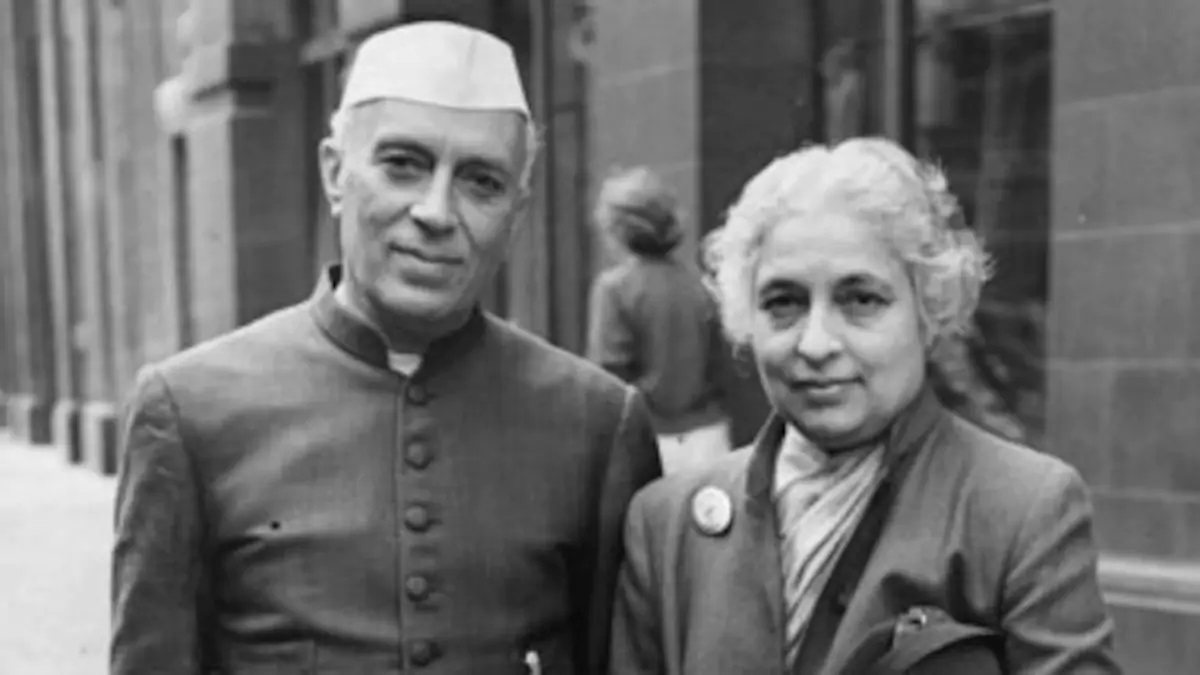 |
Jawaharlal Nehru’s dynastic tendencies, inherited from his father Motilal, were apparent in the 1930s itself, much before he became the prime minister and brazenly and nepotistically promoted his daughter, and established his dynasty.
After the 1937 elections when the ministry was being formed in UP, Govind Ballabh Pant, who became the Chief Minister, and Rafi Ahmed Kidwai proposed to Nehru inclusion of Mrs Vijaylakshmi Pandit [Nehru’s sister] in the ministry, which Nehru readily agreed.
Why did they do so? Not because they considered Vijaylakshmi competent! But, by doing so, they hoped to receive Nehru’s favour, and hoped to save themselves from unnecessary interference and outbursts of Nehru!
On Vijaylakshmi Pandit, there is an episode of the time Nehru was head of the Interim Government in 1946, as written by Stanley Wolpert in his book, ‘Nehru: A Tryst with Destiny’: “Liaquat Ali Khan and Nehru almost came to blows in the interim government’s cabinet, when Nehru named his sister Nan [Vijaylakshmi Pandit] as India’s first ambassador to Moscow. Liaquat was livid at such autocratic blatant nepotism, but his protests fell on deaf ears. Nehru yelled louder and threatened to resign immediately if Dickie [Mountbatten] supported Liaquat in the matter.”
Indira Gandhi was yet too young for Nehru to promote her at that stage.
Reference
Reference
Book - Unabridged Edition, April 2019 Revised & Enlarged to 127 MAJOR BLUNDERS by Rajnikant Puranik | Book can be purchased from www.rkpbooks.com
 Support Us
Support Us
Satyagraha was born from the heart of our land, with an undying aim to unveil the true essence of Bharat. It seeks to illuminate the hidden tales of our valiant freedom fighters and the rich chronicles that haven't yet sung their complete melody in the mainstream.
While platforms like NDTV and 'The Wire' effortlessly garner funds under the banner of safeguarding democracy, we at Satyagraha walk a different path. Our strength and resonance come from you. In this journey to weave a stronger Bharat, every little contribution amplifies our voice. Let's come together, contribute as you can, and champion the true spirit of our nation.
 |  |  |
| ICICI Bank of Satyaagrah | Razorpay Bank of Satyaagrah | PayPal Bank of Satyaagrah - For International Payments |
If all above doesn't work, then try the LINK below:
Please share the article on other platforms
DISCLAIMER: The author is solely responsible for the views expressed in this article. The author carries the responsibility for citing and/or licensing of images utilized within the text. The website also frequently uses non-commercial images for representational purposes only in line with the article. We are not responsible for the authenticity of such images. If some images have a copyright issue, we request the person/entity to contact us at satyaagrahindia@gmail.com and we will take the necessary actions to resolve the issue.
Related Articles
- Father of the Nation! Absolutely not. Mohandas Karamchand Gandhi was not the father of the nation either officially or otherwise
- When Nehru ignored warnings from Sardar Patel and Sri Aurobindo and shocked USA President: Chinese Betryal and loss of centuries old ally
- A Great man Beyond Criticism - Martyrdom of Shaheed Bhagat Singh (Some Hidden Facts)
- How Nehru's Govt helped China in conquering Tibet and let go of it's centuries old friend
- Mysterious death of Pandit Deen Dayal Upadhyaya, whose growing popularity was a threat to Congress
- Winston Churchill's hate for Indians caused millions of deaths: A villainous supremacist
- Nehru lost election and became first Prime Minister of free India: All thanks to miraculous Gandhi
- Netaji, an Impossible man can never be boxed into an ideological corner: Not just the most enigmatic figure in world history but his life is also a tough lesson in how to think about history
- On 16th Aug 1946, during Ramzan's 18th day, Direct Action Day aimed to provoke Muslims by mirroring Prophet Muhammad's victory at Badr, Gopal 'Patha', the Lion of Bengal, heroically saved Bengali Hindus & Calcutta from a planned genocide, altering history
- Was Italian family of Sonia Gandhi involved in the Bofors scam: Papers long buried, questions that were never asked
- Saam Daam Dand Bhed: How Indira and Sanjay Gandhi pulled off the Maruti scam
- Nehru's Himalayan Blunders which costed India dearly - Integration of Princely States
- Can Communism and Democracy Coexist - 100 Years of Russian Revolution
- The untold story of Maharashtrian Brahmin genocide committed by Congress after Gandhi’s assassination in 1948
- Ghost from the past: Unseen picture of Nehru voting in favour of partition of India goes viral













